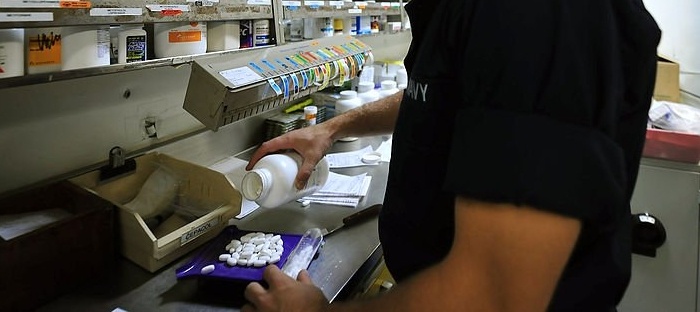
Hospitals are encouraged to further reduce specific medication safety issues that continue to cause fatal and harmful errors in patients. The Institute for Safe Medication Practices (ISMP) published a 2018-2019 targeted Medication Safety Best Practices for Hospitals that highlights 14 ways to reduce errors and improve patient safety. Two of the 2016-2017 Targeted Medication Safety Best Practices for Hospitals (number 4 and 7) have been revised for 2018-2019. Best practices number 12 through 14 are new for 2018-2019.
BEST PRACTICE 1
Dispense vinCRIStine (and other vinca alkaloids) in a minibag of a compatible solution and not in a syringe.
BEST PRACTICE 2
a) Use a weekly dosage regimen default for oral methotrexate in electronic systems when medication orders are entered. b) Require a hard stop verification of an appropriate oncologic indication for all daily oral methotrexate orders. c) Provide specific patient and/or family education for all oral methotrexate discharge orders (ISMP).
BEST PRACTICE 3
a) Weigh each patient as soon as possible on admission and during each appropriate outpatient or emergency department encounter. Avoid the use of a stated, estimated, or historical weight. b) Measure and document patient weights in metric units only.
BEST PRACTICE 4
(REVISED) Ensure that all oral liquid medications that are not commercially available in unit dose packaging are dispensed by the pharmacy in an oral or ENFit syringe.
BEST PRACTICE 5
Purchase oral liquid dosing devices (oral syringes/cups/droppers) that only display the metric scale.
BEST PRACTICE 6
Eliminate glacial acetic acid from all areas of the hospital.
BEST PRACTICE 7 (REVISED)
Segregate, sequester, and differentiate all neuromuscular blocking agents (NMBs) from other medications, wherever they are stored in the organization.
BEST PRACTICE 8
Administer high-alert intravenous (IV) medication infusions via a programmable infusion pump utilizing dose error-reduction software.
BEST PRACTICE 9
Ensure all appropriate antidotes, reversal agents, and rescue agents are readily available. Have standardized protocols and/or coupled order sets in place that permit the emergency administration of all appropriate antidotes, reversal agents, and rescue agents used in the facility. Have directions for use/administration readily available in all clinical areas where the antidotes, reversal agents, and rescue agents are used.
BEST PRACTICE 10
Eliminate all 1,000 mL bags of sterile water (labeled for “injection,” “irrigation,” or “inhalation”) from all areas outside of the pharmacy.
BEST PRACTICE 11
When compounding sterile preparations, perform an independent verification to ensure that the proper ingredients (medications and diluents) are added, including confirmation of the proper amount (volume) of each ingredient prior to its addition to the final container.
BEST PRACTICE 12
Eliminate the prescribing of fentaNYL patches for opioid-naïve patients and/or patients with acute pain.
BEST PRACTICE 13
Eliminate injectable promethazine from the hospital
BEST PRACTICE 14
Seek out and use information about medication safety risks and errors that have occurred in other organizations outside of your facility, and take action to prevent similar errors
Hospitals can focus their attention to these 14 areas over the next two years. These best practices have been successfully adopted by many organizations. Although these best practices were written specifically for hospitals, other healthcare settings may also find them applicable. For more details on each best practice, as well as the rationale behind each one, follow the link below to access the full ISMP publication.
All information in this blog post was derived from the ISMP document “2018-2019 Targeted Medication Safety Best Practices for Hospitals.” Please refer to the publication for further details.




